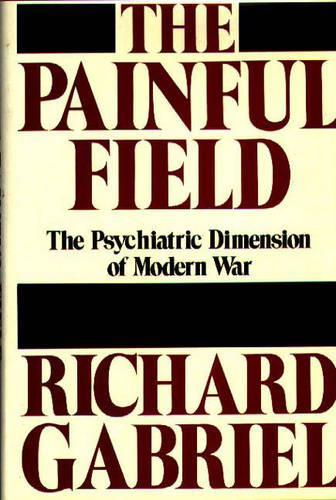
The Painful Field: The Psychiatric Dimension of Modern War
(Hardback)
Publishing Details
The Painful Field: The Psychiatric Dimension of Modern War
By (Author) Richard A. Gabriel
Bloomsbury Publishing PLC
Praeger Publishers Inc
16th May 1988
United States
Classifications
Tertiary Education
Non Fiction
355.0019
Physical Properties
Hardback
207
Description
Colored by the popular and official mythologies of heroism, the accepted view of mental collapse during combat is that it is a fairly rare occurrence that can be attributed to psychological weakness or simple cowardice. With the advent of each new generation of weapons, however, this view becomes less tenable. The increasingly lethal battlefields of conventional warfare have sharply escalated the numbers of psychiatric casualties, which reached staggering proportions worldwide by the early 1980s. Professor Gabriel, a leading authority on military psychiatry, provides the first systematic examination of the problem, its history and current dimension, the systems developed by the superpowers to counter it, and the far-reaching implications of our continued acceptance of warfare under radically altered conditions.
Reviews
Gabriel (Saint Anselm College) has written extensively in the field of contemporary military affairs. This volume examines the psychiatric impact of the increasingly lethal conventional battlefield on the participants. Gabriel looks at the historical and current psychiatric dimensions of warfare along with systems developed by the US and the USSR in recognition of them. He reminds us that human beings are very fragile and that historically they have suffered psychiatric collapse in combat no matter how well trained the individual or how cohesive the unit. Several approaches are explored ranging from the more traditional realistic training, unit rotation, and better unit cohesion, to chemical means. Both the US and the USSR are, reportedly, studying ways of overcoming fear and preventing psychiatric collapse by opening up the Pandora's box of the prescribed use of drugs to alter the human mental processes. Gabriel does not provide answers; rather, he paints a frightening picture. A thoughtful book written from the perspective of the social scientist rather than the psychiatrist. The policy implications are tremendous. For upper-level students.-Choice
"Gabriel (Saint Anselm College) has written extensively in the field of contemporary military affairs. This volume examines the psychiatric impact of the increasingly lethal conventional battlefield on the participants. Gabriel looks at the historical and current psychiatric dimensions of warfare along with systems developed by the US and the USSR in recognition of them. He reminds us that human beings are very fragile and that historically they have suffered psychiatric collapse in combat no matter how well trained the individual or how cohesive the unit. Several approaches are explored ranging from the more traditional realistic training, unit rotation, and better unit cohesion, to chemical means. Both the US and the USSR are, reportedly, studying ways of overcoming fear and preventing psychiatric collapse by opening up the Pandora's box of the prescribed use of drugs to alter the human mental processes. Gabriel does not provide answers; rather, he paints a frightening picture. A thoughtful book written from the perspective of the social scientist rather than the psychiatrist. The policy implications are tremendous. For upper-level students."-Choice
Author Bio
RICHARD A. GABRIEL, Professor of Political Science at Saint Anselm College, is a well-known scholar in the field of contemporary military affairs.
